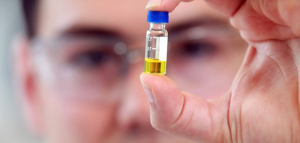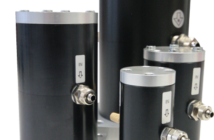
Cawthron Institute announced a global distribution agreement with Sigma-Aldrich Corporation to supply Cawthron’s unique, high-value marine biotoxins to laboratories worldwide.
Cawthron Institute last month announced a global distribution agreement with international analytical and chemical company Sigma-Aldrich Corporation, to supply Cawthron’s unique, high-value marine biotoxins to laboratories worldwide.
“This is an exciting new development and an excellent outcome for our highly-regarded marine toxin and food safety research,” says Cawthron Institute chief executive, Professor Charles Eason.
“The partnership adds a new suite of products to Sigma-Aldrich’s catalogue, supports laboratories worldwide to improve identification of human health risks from algae, and generates high-value exports for New Zealand.”
The marine biotoxins are used by laboratories worldwide as reference materials when testing for algal toxins in seafood. Cawthron produces the toxins using a highly-sophisticated process developed at the Institute, involving extracting, isolating and purifying the bioactive compounds from toxin-producing microalgae that are grown and processed on site.
“Cawthron is one of just a handful of organisations worldwide with the capability to produce these rare, naturally occurring marine biotoxins and bring them to market,” Professor Eason says. “These are very high-value manufactured exports for niche markets.”
The equivalent of a teaspoon of these marine biotoxins is valued at over NZ $100,000, “… but it is a very small, niche market and they are sold in minute (microgram or milligram) quantities.”
The new agreement will see Cawthron and Sigma-Aldrich work together to develop a new product range and extend availability of the marine toxins through the global Sigma-Aldrich distribution network. It will be the first time such toxins have been included in the Sigma-Aldrich catalogue.
Cawthron has more than 30 years’ experience with microalgae and has unique expertise in extraction of natural compounds from algae. In 2000, it developed the first instrumental test method for marine toxins in seafood – replacing the existing mouse-based test. The new method has been adopted by laboratories worldwide and is now the standard for detecting marine toxins in seafood.
“The instrumental method requires calibration using purified marine toxins, which we produce,” says Cawthron Institute’s Analytical Services Technical Manager Dr Paul McNabb. “We identified an opportunity to work with Sigma-Aldrich to produce and provide these toxins on a global scale, and they were very supportive, acknowledging our leadership and expertise in this area, and were keen to respond to the growing demand for these products.”
“This agreement will enable scientists around the world to more easily access the toxins that are critical for monitoring seafood safety. Working together with Sigma-Aldrich, we can develop new products to meet the needs of a global customer base and help provide greater certainty to consumers that their seafood is safe to eat.”




























































































